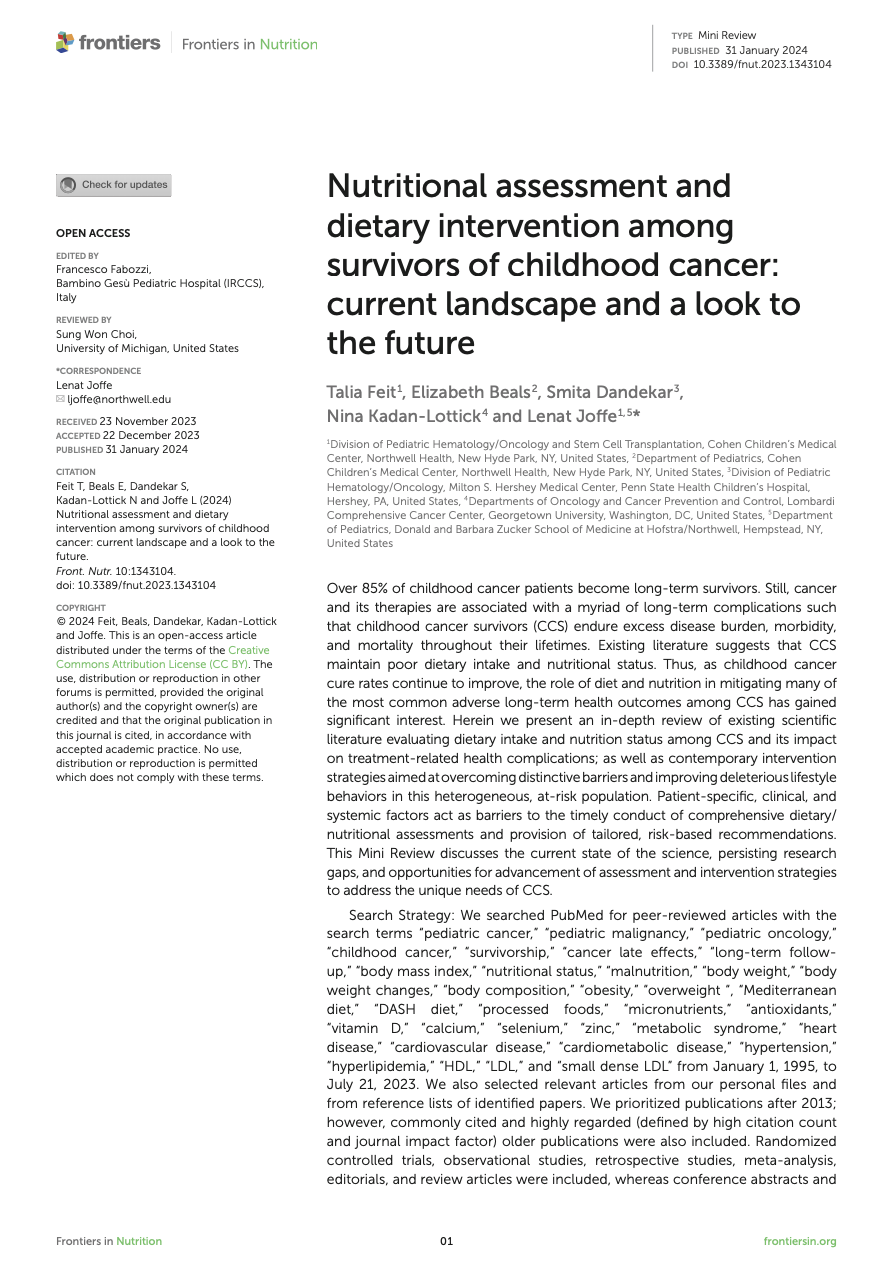World Health Organization, Food and Agriculture Organization of the United Nations
What are healthy diets? Joint statement by the Food and Agriculture Organization of the United Nations and the World Health Organization
Publication
31 Oct 2024
29 Jan 2024

Over 85% of childhood cancer patients become long-term survivors. Still, cancer and its therapies are associated with a myriad of long-term complications such that childhood cancer survivors (CCS) endure excess disease burden, morbidity, and mortality throughout their lifetimes. Existing literature suggests that CCS maintain poor dietary intake and nutritional status. Thus, as childhood cancer cure rates continue to improve, the role of diet and nutrition in mitigating many of the most common adverse long-term health outcomes among CCS has gained significant interest. Herein we present an in-depth review of existing scientific literature evaluating dietary intake and nutrition status among CCS and its impact on treatment-related health complications; as well as contemporary intervention strategies aimed at overcoming distinctive barriers and improving deleterious lifestyle behaviors in this heterogeneous, at-risk population. Patient-specific, clinical, and systemic factors act as barriers to the timely conduct of comprehensive dietary/nutritional assessments and provision of tailored, risk-based recommendations. This Mini Review discusses the current state of the science, persisting research gaps, and opportunities for advancement of assessment and intervention strategies to address the unique needs of CCS.